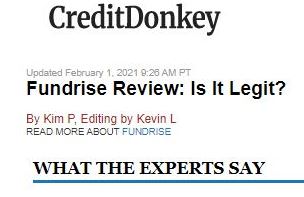WHAT THE EXPERTS SAY
Beginners can start investing in real estate with just a little bit of money. Find out if that’s a good idea.
As part of our series on real estate investing and passive income, CreditDonkey asked a panel of industry experts to answer some of our readers’ most pressing questions:
- Is real estate crowdfunding a safe or risky investment?
- What is the best way for beginners to invest in real estate?
Here’s what they had to say:
Suzanne Hollander
Attorney and Professor of Real Estate Law at Florida International University in Miami, Florida
Is real estate crowdfunding as profitable as traditional real estate investing?
Crowdfunding has a “trendy name” – it may be viewed as way for (1) developers to raise capital to dilute the amount of “skin” (funds) the developer itself contributes to purchase the property or (2) for investors to participate in investing in property they may not be able purchase with only the amount of their own funds.
Trendy crowdfunding is not traditional real estate investing. It does not have the same risks and rewards.
Traditional real estate investing involves a person, group or entity investing (purchasing) a real property.
Investing in crowd funding, means a person invests money with a “crowd” – a group of other people – who pool their money together to invest in real property. Each individual investor is contributing funds to help another party, called a “sponsor” to purchase the property. Unlike a traditional investor in real property, an individual investor of the “crowd” does not own the real property and is not on title to the real property.
An investor considering to invest in a crowd funded property should carefully read the offering to determine how the investors will receive returns – will the investor receive (rents), and/or will the investor will receive income at the disposition (sale) or refinancing of the property.
A traditional real estate investor may pledge their interest in the real property to obtain a mortgage loan, an individual crowd funder investor may not do this because they do not have title to the underlying property.
Some individual crowd funding investors feel crowd funding offers a benefit whereby the investor may invest in real estate without the burdens of managing real estate and dealing with tenants (the owner/sponsor of the property does this). Crowdfunding also provides an investor an opportunity to add real estate as a diversification to an investment portfolio of stocks and bonds.
Crowdfunded real estate investment is not a choice for investors who want to control the management and operation of the property.
The crowd funding alternative gives developers the opportunity to leverage social networks on technology to raise funds. – beyond the traditional paths of friends, family, and bank debt. It is still regulated to protect investors. Most crowd funding opportunities are only open to “accredited investors” that meet certain income and net worth thresholds.
There are many risks because investments in property are illiquid and currently there is no secondary market for crowd funding investors to trade their shares.
Write to Kim P at feedback@creditdonkey.com. Follow us on Twitter and Facebook for our latest posts.
Shared from Credit Donkey’s February 1, 2021 Article
Suzanne Hollander is a real estate attorney, speaker, broker, professor and voice for property rights, real estate, housing infrastructure development and women investment advocate. The U.S. Department of State appointed Suzanne to its Fulbright Specialist Roster as an Expert in Real Estate. Commercial Real Estate Women (CREW) Network awarded Suzanne its Global Impact Award for Career Advancement for Women in 2018 and Globestreet recognized her as a Woman of Influence in Commercial Real Estate – Mentor Category 2019.
Nationally, Suzanne is a Board Member of Housing on Merit, a 501(c)(3) Nonprofit organization, committed to preserving and developing affordable housing nationwide, a Board Member of RiskFootprint, a Property-Technology company quantifying environmental/ climate risks for property.
Fluent in Spanish and English, Suzanne is an invited attorney expert delivering speeches and moderating panels to private industry, universities and government entities through the U.S. and Latin America on:
- Real estate law, housing/infrastructure development & urban/regional decentralization
- Importance of private property rights to wealth creation and promotion of democracy
- Strategies to build transparent legal property systems to create efficient markets valuable to attract global allocation of capital
- Shopping centers impact on regional economy and social issues
- Strategies to advance the careers and education of women in real estate, law, finance
Suzanne’s comments on real estate, housing and property rights appear in Spanish, Portuguese and English media, including Wall St. Journal Money Watch, YahooFinance!, The Mortgage Reports, Miami Herald, El Nuevo Herald, The Dallas Morning News, The Palm Beach Post, Wallethub, The Real Deal, Bankrate, Mercado De Dinero USA, GlobeStreet, Scotsman Guide Commercial Real Estate edition, El Monterero, Peru and InfoMoney, Brazil.
Disclaimer: Professor Real Estate® written materials apply generally to real estate subjects and are not intended to apply to specific legal issues.
Copyright 2021 ~ All rights reserved. ~ Professor Real Estate® Suzanne Hollander



Comments are closed